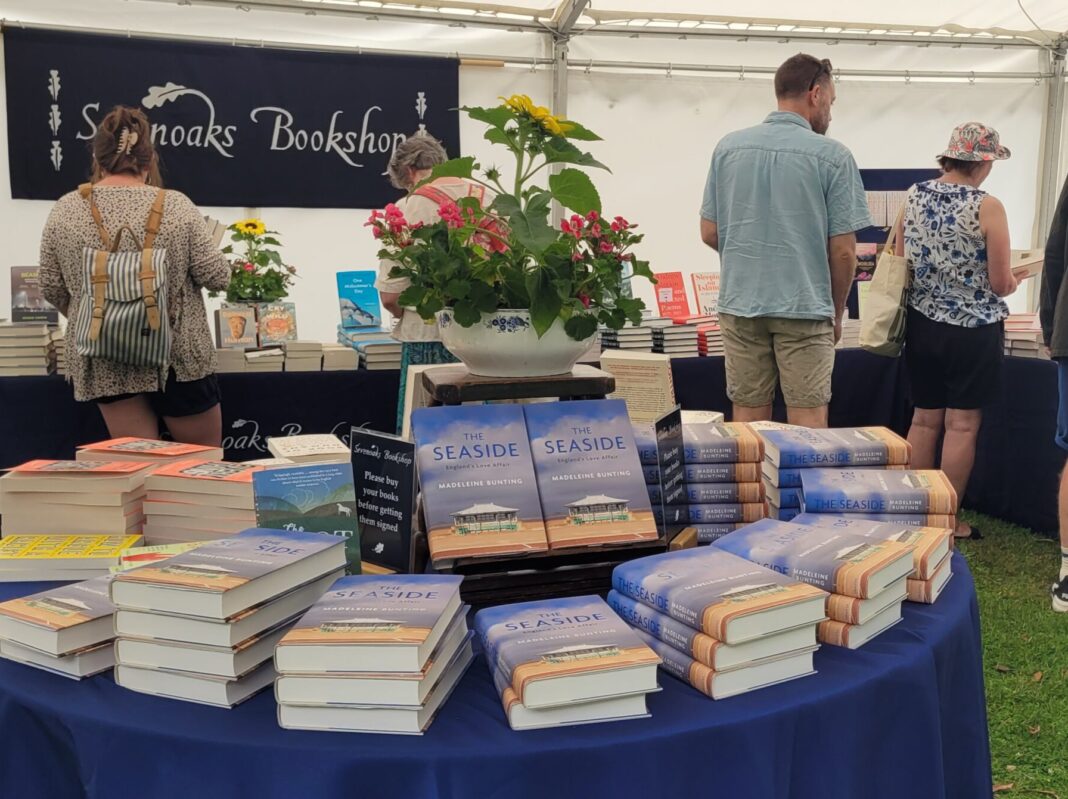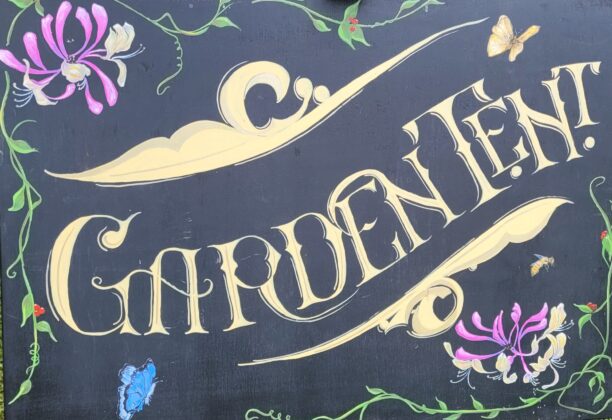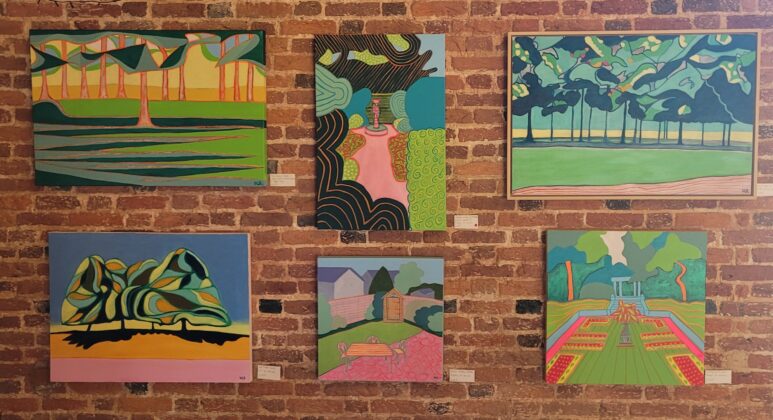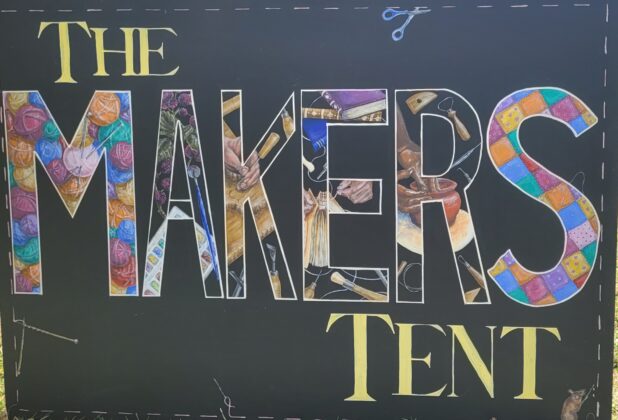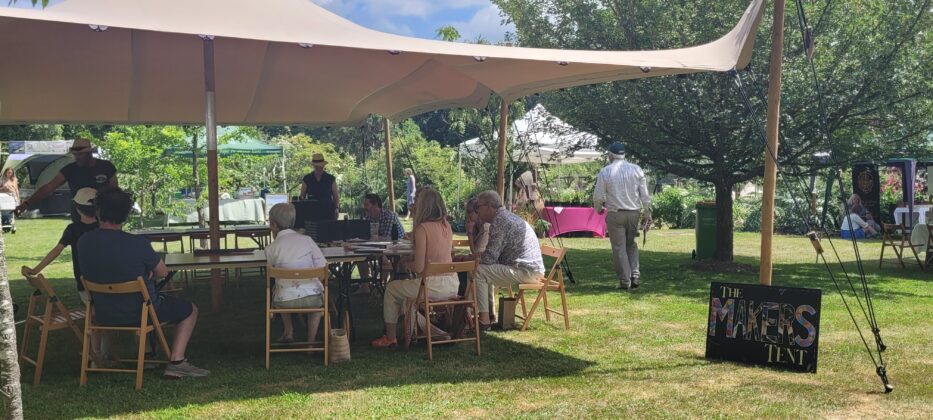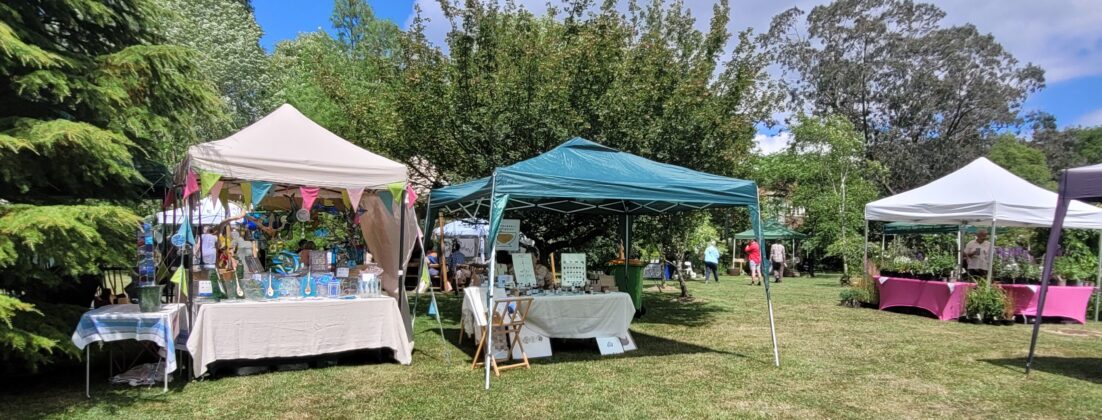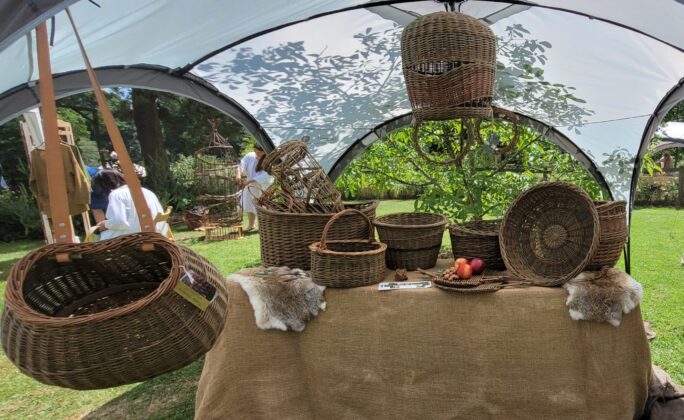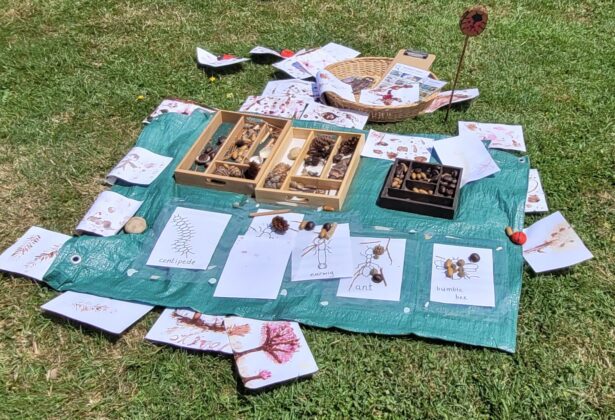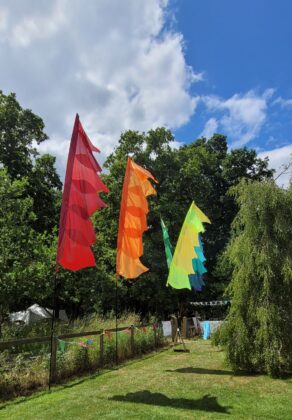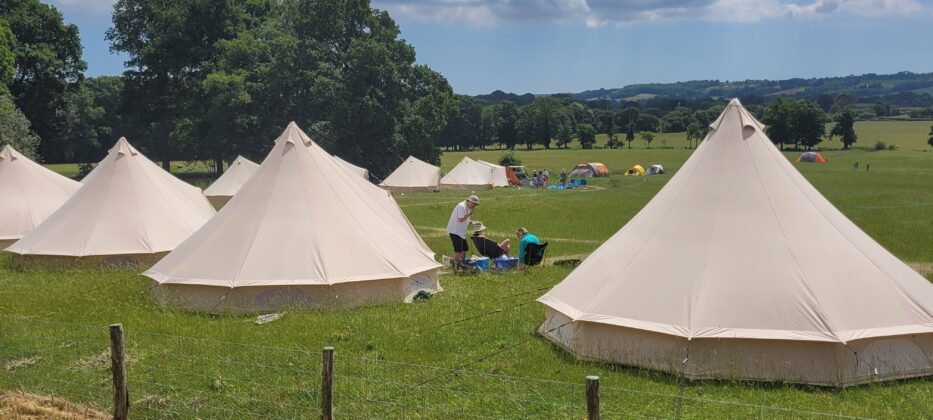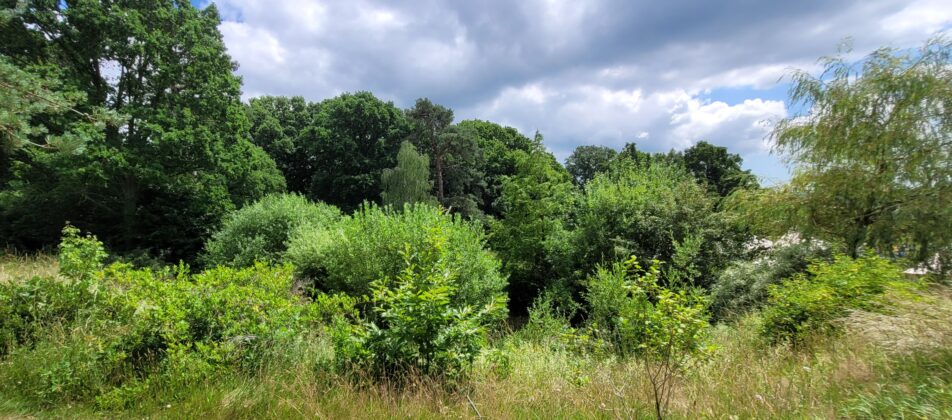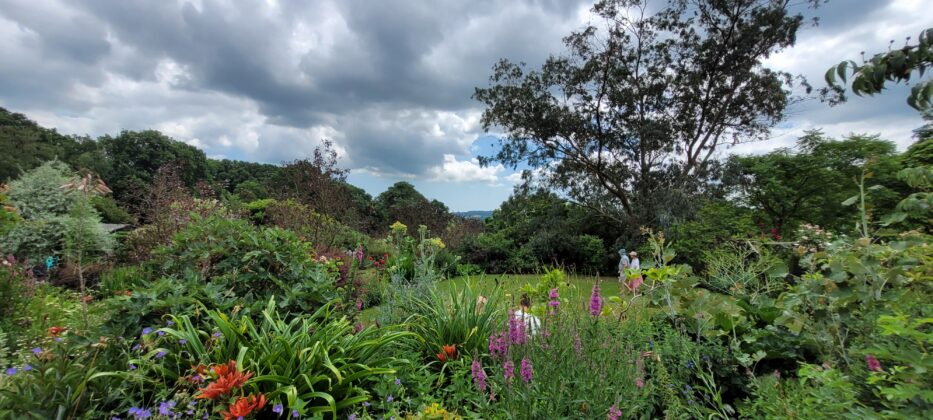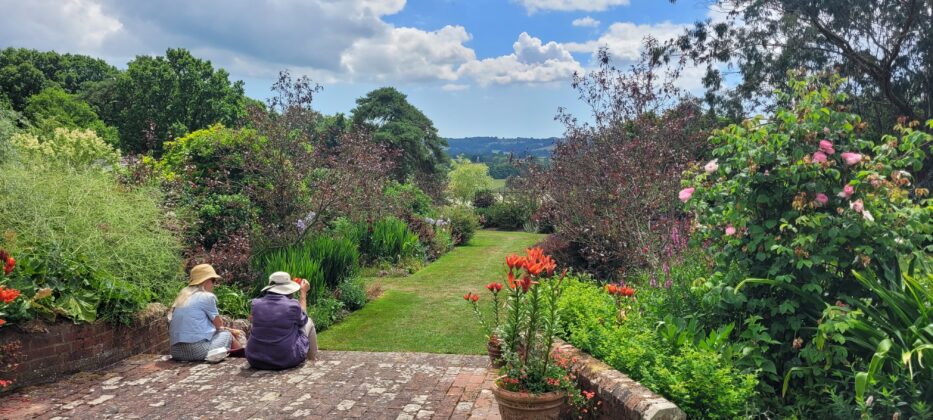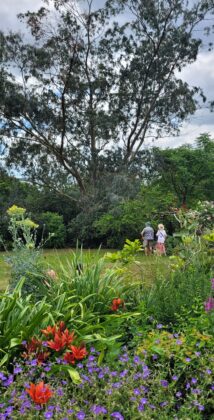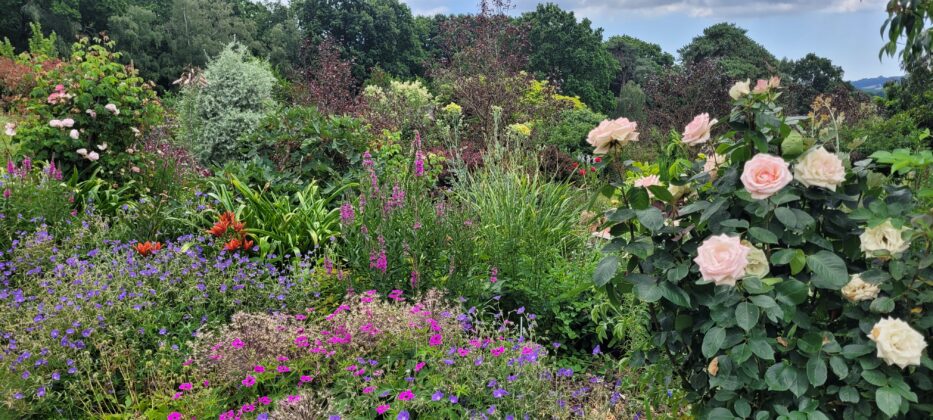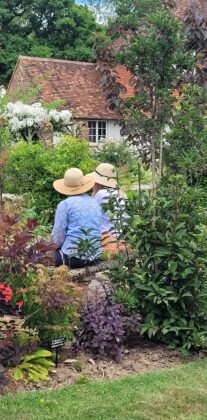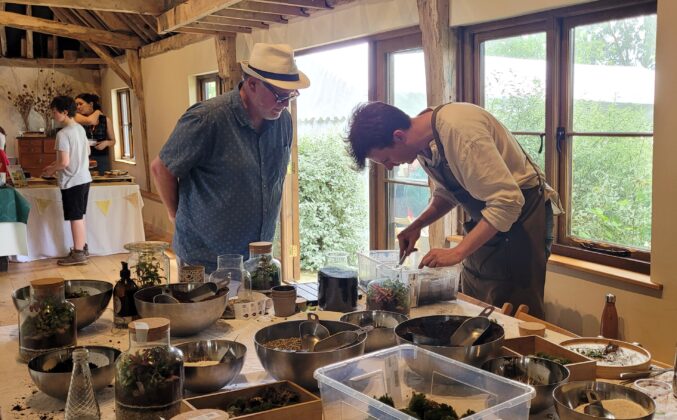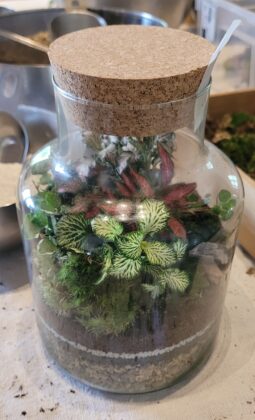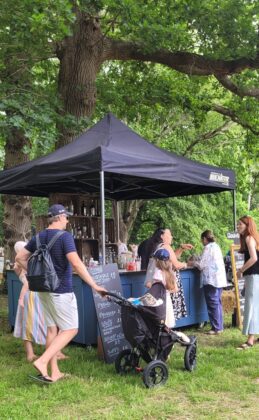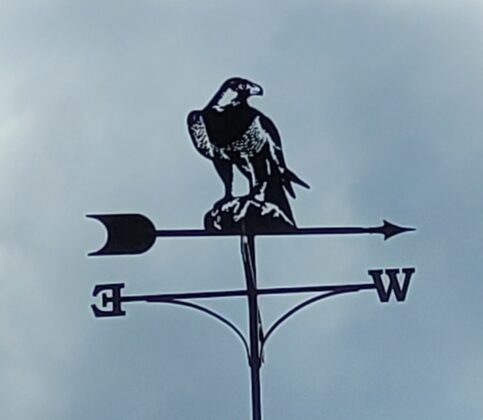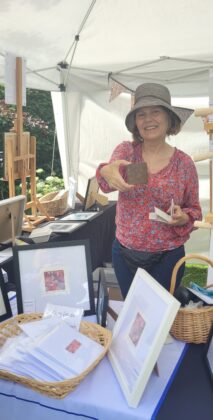There can be few places more lovely and fitting for a literary festival dedicated to the natural world and how we shape, change and nurture it, than the gardens of the Arts and Crafts house and garden, Boldshaves Garden just outside Woodchurch. The Wealden Literary Festival is a jewel of a festival started in 2015 by Peregrine and Deirdre Massey. Set among their beautiful gardens and woodlands with far-reaching views across the Wealden landscape, it is the epitome of an English pastoral, attracting visitors interested in writing on the natural world, environmentalism, farming, food, art, poetry, and philosophy.
The weather during the weekend of June 24 and 25 could not have been more perfect for enjoying the tented talks by outstanding authors, taking part in the various workshops, browsing in the stalls and, for children, exploring the grounds, climbing trees, building and cooking on campfires, creating artworks and playing games amongst the trees. A magical idyll for adults and children alike.
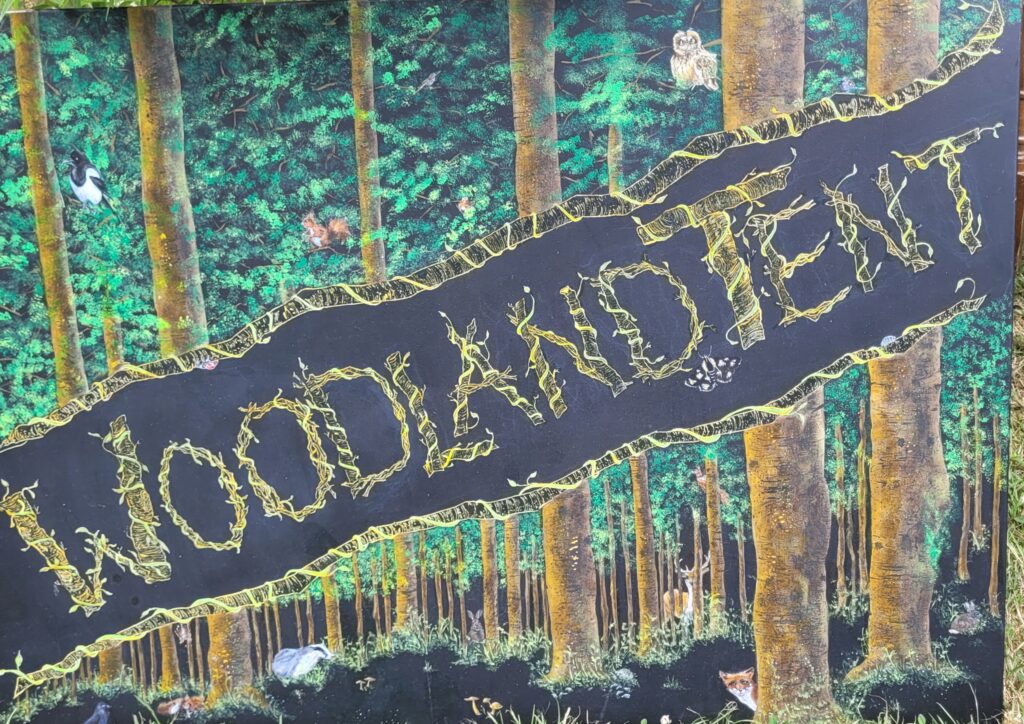
There are so many interesting talks and activities, that it can be difficult to choose which to take part in. From the former poet laureate, Andrew Motion, discussing his life and poetry (Sleeping on Islands: A Life in Poetry) to Madeleine Bunting’s travels to the great seaside resorts exploring their history and present-day struggles in The Seaside: England’s Love Affair to Keggie Carew’s Beastly: A New History of Animals and Us examining the millennia-long relationship between humans and animals, there was much to explore. One recurring theme of the weekend was the love affair that we have with trees and woods and forests which have inspired poems, fairy tales, stories and art. Michael Morpurgo spoke movingly about his book My Heart was a Tree and artist, writer and activist, Katie Holten discussed her book The Language of Trees: A Rewilding of Literature and Landscape – both love letters to trees and the special place they hold in our memories, stories and into our future.
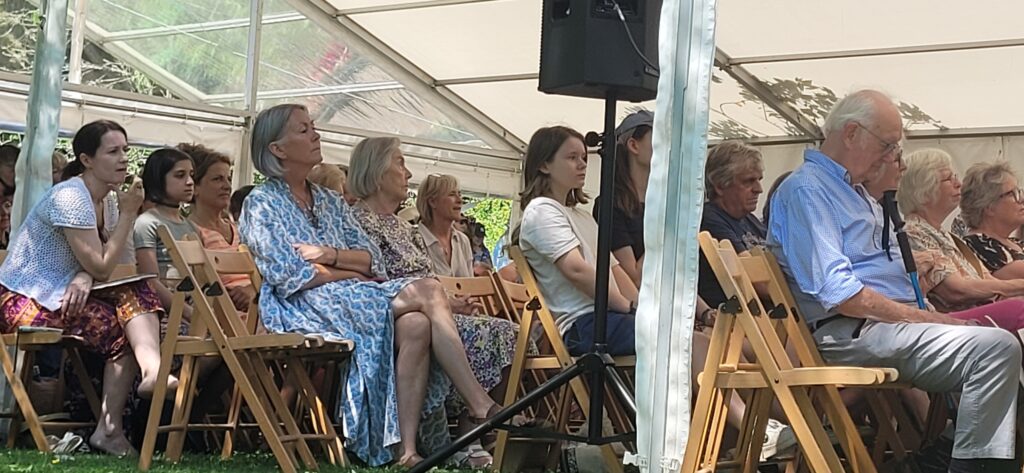
Of course, at any book festival devoted to the natural world, the climate crisis looms large – the causes and rapid progress of global warming; the dangers and destruction that it is bringing about; and the ways to halt and reverse the disaster that is unfolding, are considered in many of the books discussed. One such, Rooted: Stories of Life, Land and a Farming Revolution by Sarah Langford looks at ways that modern farming practices that are regenerative rather than sustainable (do we want to sustain what we have now, that is, already depleted soils, widespread use of pesticides and fertilisers, pollution and increasingly rising costs?) are helping to heal the land and can reverse the damage done by industrialised farming.
In what was a fascinating discussion between Sarah Langford, award-winning farmer Emma Loder-Symonds of Nonington Farms and Philip Lymbery the CEO of Compassion in World Farming, (whose 60 Harvests Left: How to Reach a Nature Friendly Future / How Farming can Heal the Earth, warns that without change, the world has just that left – 60 harvests) the apocalyptic scenario of growing population, climate change and the disastrous effects of factory farming, big agriculture and the food industry can be countered with radical and innovative new ideas in farming and a return to traditional methods to build and improve soil.
The enthusiasm and vision of the two women farmers is inspiring and, despite the enormous efforts needed to change the perceived wisdom in government and industry, gives us cause for some optimism. They were not going to let us, the consumer, off the hook though. Our choices are vital too. To make a difference we need to eat less meat and dairy, know the farming practices of farms where local produce comes from, and take the family to open farms to understand how they work.
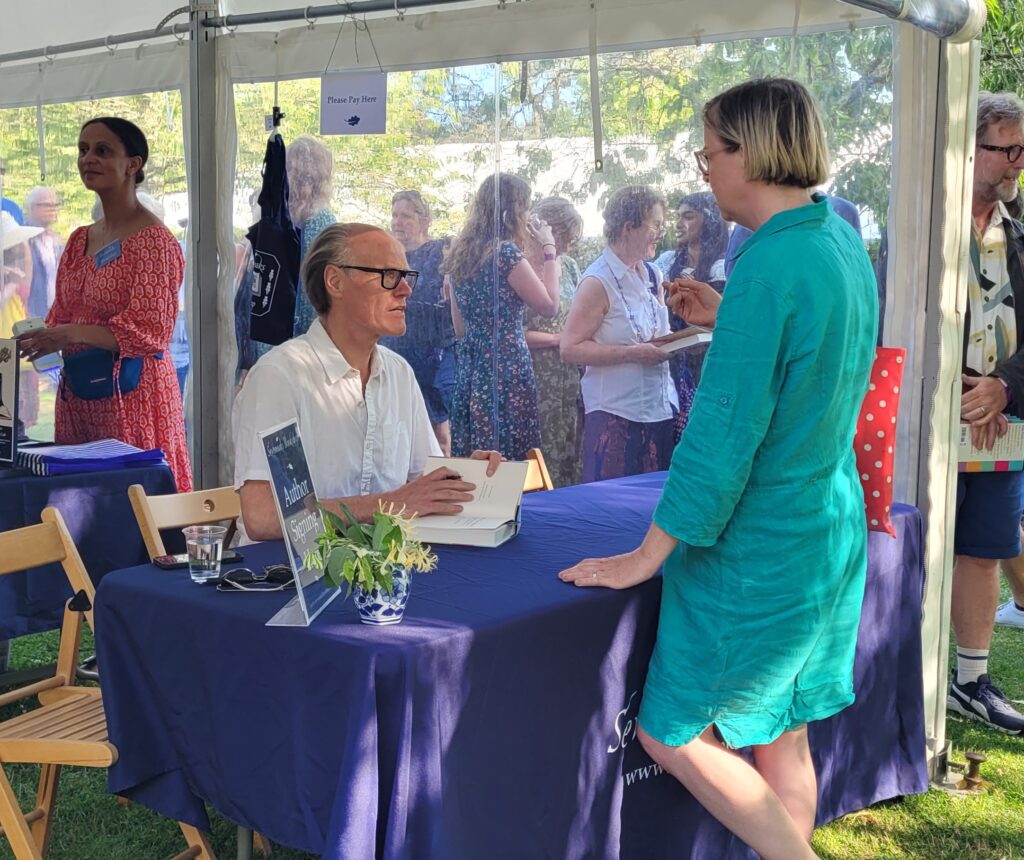
Will Gompertz, former BBC arts editor, talked entertainingly and passionately about his new book See What you are Missing: 31 Ways Artists Notice the World taking us into the minds of artists, investigating how they perceive the world, and so helping us, he argues, to see the world in a different, more exacting and creative way.
In a fascinating and thought-provoking talk about his new book Philosophy and Life, philosopher AC Grayling, explained how he drew together the life and works of great thinkers including Sophocles, Shakespeare and Confucius to help to think about and answer the great questions, “How should I live my life?”, “What sort of person should I be?” and “How do I live a good life, truly worth living?”
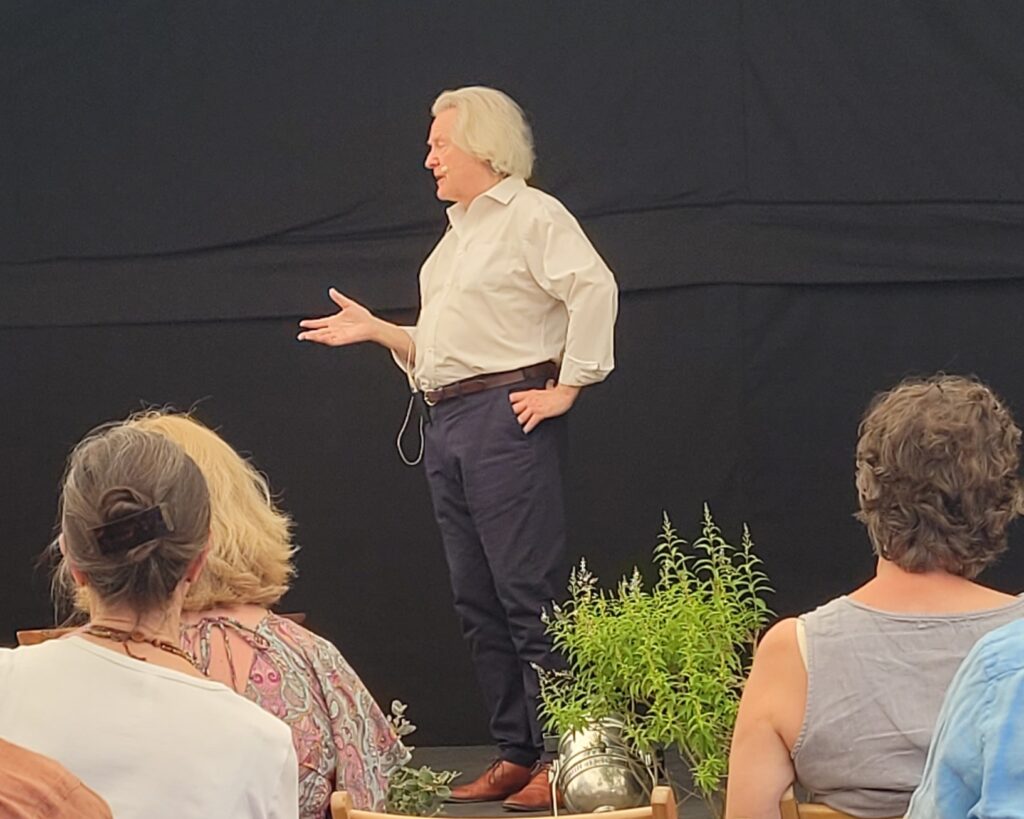
So much to take away from a truly stimulating and inspiring weekend. As the festival patron, Michael Morpurgo puts it: “To be at Wealden Festival, at Boldshaves, is to be with kindred spirits, telling our tales, talking our talk, singing our songs, listening and learning, eyes open and ears open, heart open, to one another and to the wild and wondrous world about us.”
Image Credits: Juliet Duff .



